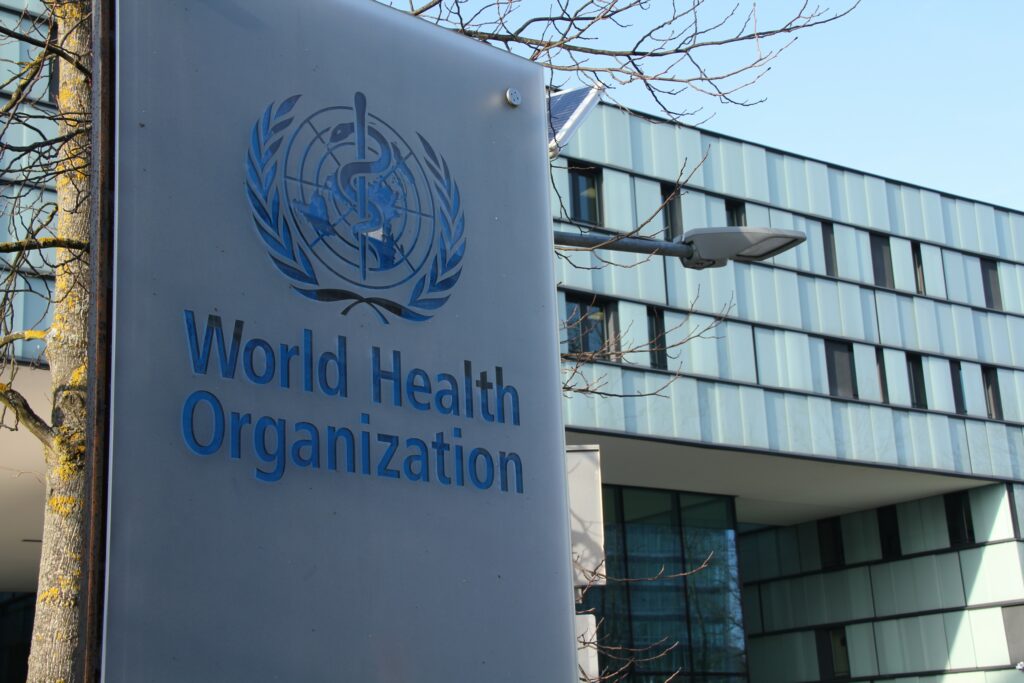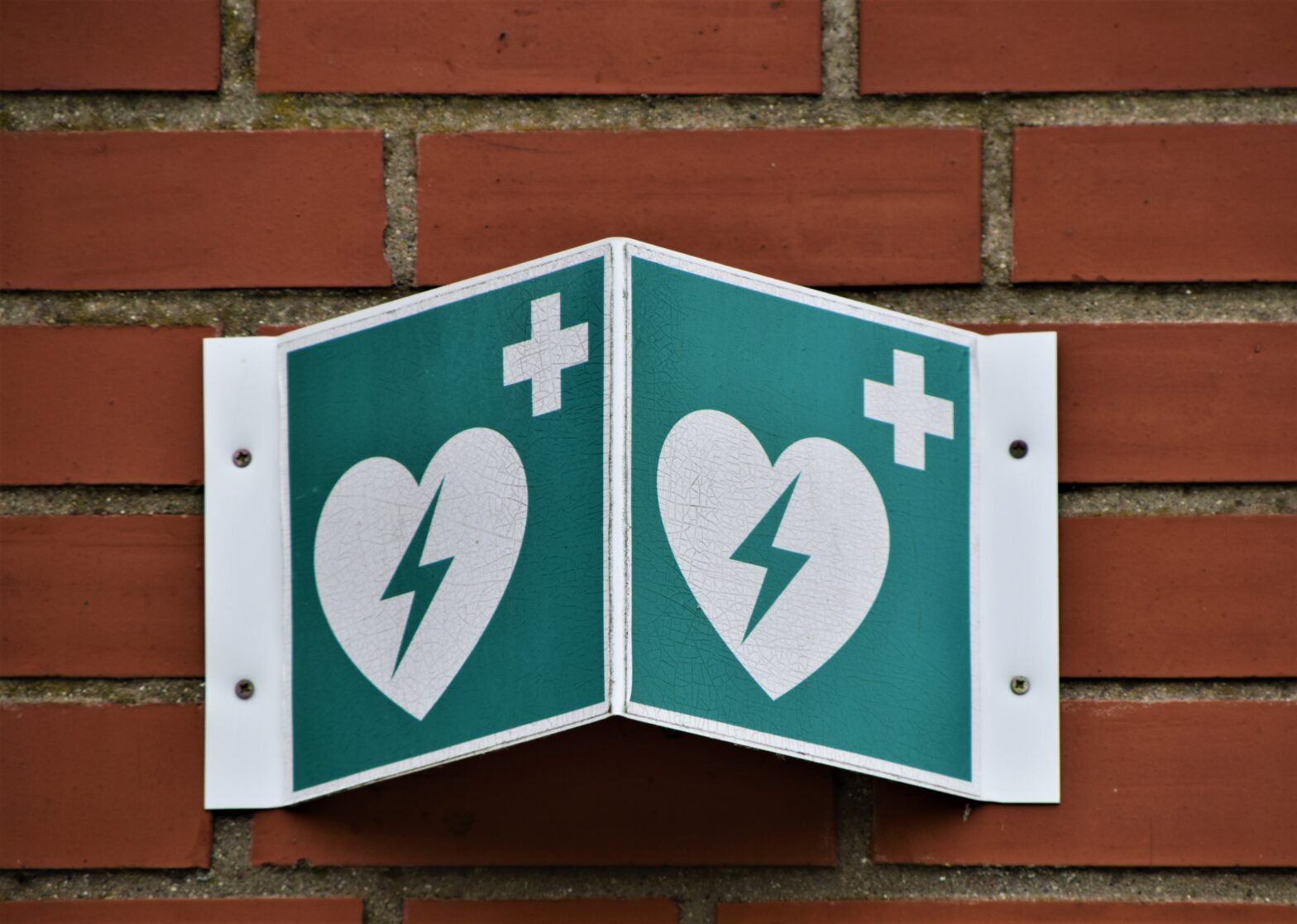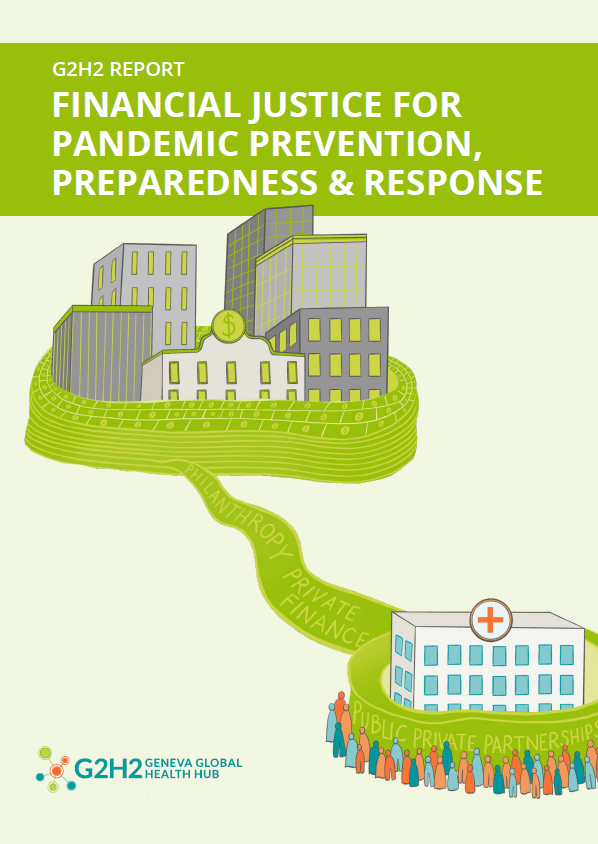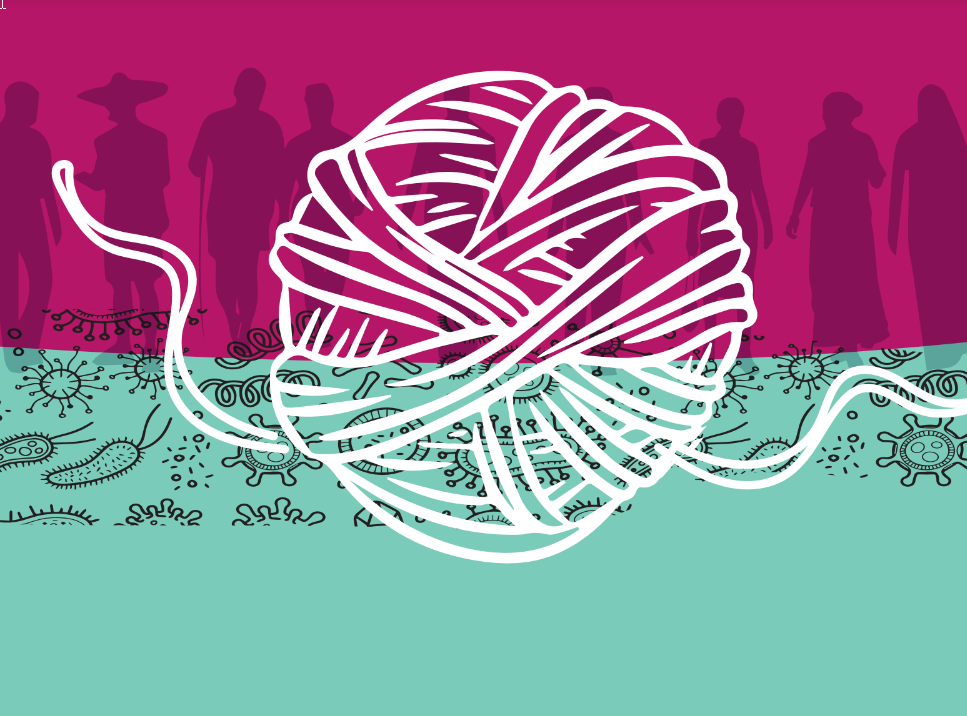Share Twitter Facebook Email Copy URL
Series “Inside the UN” > WHO Executive Board 148, Geneva, 18-26 January 2021
If we were to make a list of meetings that encapsulate the importance of the World Health Organisation (WHO) in global health, but at the same time expose the WHO’s contradictions and shortcomings, the Executive Board (EB) 148 would take the cake. Being held a year after the WHO declared Covid-19 as a “Public Health Emergency of International Concern” on 30th January 2020, EB148 could have been a milestone in giving direction towards equitable distribution of vaccines and other Covid-19 related technologies, strengthening public health systems to deal with the pandemic and handling social determinants.The last year has shown that rich countries can deprive the poorer nations of life-saving vaccines by overbuying for their own populations. This is impunity and the WHO could have effectively intervened to ensure that Health for All does not remain just a phrase.
Beyond Covid-19, EB148 agenda covered public health issues of importance such as public health emergencies: preparedness and response, topics related to access to medicines, social determinants of health, patient safety and antimicrobial resistance, to name a few. This article documents some discussions that might shed some light on the politics and discussions of EB148 in the backdrop of the need to uphold the role of multilateralism in leading the Covid-19 pandemic response.
By Gargeya Telakapalli, WHO-Watch Team, People’s Health Movement.

Governance – Will governments rise to the occasion
The Covid-19 pandemic has validated the need and importance of the “WHO, as the directing and coordinating authority on international health within the United Nations system” and the dangers that might manifest in the case of a weak WHO and United Nations (UN) system. The realisation comes from the lack of solidarity among countries and an existing market-led economy that prioritises profits over people’s health even during a pandemic. Remarks of WHO’s Director General, Dr Tedros, at the opening of the EB148 that “the world faces a moral catastrophic failure in the Covid-19 vaccine equity” is only a faint reflection of the chaos caused due to sidelining of WHO and multilateral processes. Similar voices of disappointment were noted in the second report of “The Independent Panel for Pandemic Preparedness and Response”. The panel is headed by Helen Clark, former Prime Minister of New Zealand and Ellen Johnson Sirleaf, former President of Liberia.
Though it would be untrue to argue the absence of coordinated efforts, results of global efforts have been highly inadequate. Had the WHO, as part of the UN system, been allowed to be in the driver’s seat in Covid-19 response, results could have been equitable and fairer. Instead, multi-stakeholder platforms such as “The Access to COVID-19 Tools (ACT) Accelerator”, popularly known as ACT-A, with representatives of transnational corporations and philanthrocapitalists took over the process and failed to rise to the challenge. Multistakeholderism has been known for its lack of accountability, transparency and bias towards market oriented efforts. When compared with multilateral efforts, multistakeholderism tries to cater to those with power and resources because of the way they are structured and composed of a select few countries or private organisations, thereby leaving poorer countries without resources at the mercy of the outcomes. A detailed argument about the shortcomings of multistakeholderism in the context of Covid-19 response can be accessed in this recently released “Covid19 Vaccine Governance: Sidelining Multilateralism” published by the People’s Health Movement (PHM).
The good news for EB-148 came as the Joe Biden United States (US) administration decided to retreat from the previous administration’s stand to pull out of WHO as of mid-2021. In a symbolic gesture, Dr Anthony Fauci represented the US on the third day of the EB and communicated the intentions of the new administration for increased cooperation. He also informed the Executive Board about the initiative to revoke the regressive global gag rule which prohibits foreign non-governmental organizations (NGOs) receiving US government assistance from providing abortion services. Despite the well-intentioned speech and a moral victory for the WHO, the other interventions by USA and Dr Fauci were business-as-usual without even a reference or support to the demand by 100 plus countries for a waiver of TRIPS which aims to ease intellectual property (IP) barriers that restrict access to COVID-19 vaccines, medicines and health products. It needs to be seen in the coming months if there will be any difference in the US views on people’s health in the WHO and the UN system. Furthermore, the pandemic has shown the deficiencies of the neoliberal model and privatised healthcare that has been championed by the US, be it a Republican or a Democratic administration and it is not yet clear if Biden will be able to break away from the positions.
The other important discussion was on sustainable funding for the WHO. It is a known fact that over the years, WHO has been weakened by a lack of funding and has been struggling to fulfil the needs of its member countries. Lack of quality, untied funding from governments has forced the WHO to approach and collaborate with various philathrocapitalists and private sector enterprises. This unduly influences the work of WHO and is detrimental to its independent functioning. An example of this concerning trend was the excessive importance given at the EB148 to the newly created private grant making foundation – WHO foundation – as part of the solution to tide over the funding deficit, while in reality it could be a problematic approach in itself considering the largely private sector funding the foundation hopes to tap into and thereby exposing to conflict of interests. The member countries need to rise up to the occasion and free WHO from decades of donor chokehold by increasing the assessed contributions. This would allow WHO to work to the best of its abilities without reliance on the private sector.
Social Determinants of Health
EB148 discussed the pertinent issues around Social Determinants of Health and passed a resolution that commits governments and WHO to address non-medical interventions such as social and economic conditions that influence health outcomes. Governments noted that within the last year, the Covid-19 pandemic contributed to increasing poverty, food insecurity, unemployment, gender inequities and highlighted the effects of these social factors on the health of the marginalised populations. Madagascar, speaking on behalf of the African region, mentioned that an estimated 40 million Africans have been pushed below the poverty line within the last year. Some countries noted that the dismal situation of their economy is impacting the ability of governments to respond to social determinants of health. Despite the extensive discussion, it needs to be seen if the governments have recognised the importance to uphold human rights and take into consideration the issues of marginalised populations such as migrants in the response to the Covid-19 pandemic.
Access to Medicines and Health Products
In every Executive Board and World Health Assembly, the topics around making medicines and health products accessibility takes centre stage for debate and discussion. This time the main topics that dealt with the issue were the WHO report on Expanding Access to Effective Treatments for Cancers and Rare and Orphan Diseases (including the discussion on transparency) and the Global Strategy and Plan of Action on Public Health, Innovation and Intellectual Property (including a resolution on local production). Proceedings of the EB showed that a number of countries are concerned over high costs of patented drugs. In particular, intellectual property rights are posing significant barriers to the innovation of new products and entry of generic medicines onto the market. The discussions also take significance in the backdrop of the demand at the WTO for a waiver of certain provisions of the Agreement on Trade-Related Aspects of Intellectual Property Rights (TRIPS), with the aim to suspend grant nor enforcement of patents and other intellectual property related to Covid-19 drugs, vaccines, and other medical products for the duration of the pandemic.
Another important intervention was the proposal of Ethiopia supported by China, Eswatini, Ghana, Kenya, Namibia, Rwanda, South Africa, Sudan, Togo and Zimbabwe to “Strengthening Local Production of Medicines and Other Health Technologies to Improve Access“. The proposal comes in the backdrop of the global breakdown of supply chains and the need for countries and regions to increase their manufacturing capacity towards locally producing medicines, vaccines and other health products and being self-sufficient. It would also be a way out for countries to avoid bearing huge costs to procure medicines and health products.
Standardisation of Medical Devices Nomenclature
The initiative for the standardisation of medical devices nomenclature aims to have an international classification, coding and nomenclature for medical devices (INMD). This was necessary as there is no publicly available device nomenclature that supports harmonization of global identification efforts. Setting up a standard nomenclature would help in making the medical devices accessible by allowing for common referencing, understanding standards, helping rational use and purchase, creation of essential lists and encouraging generic production to increase access.
Preparation of a globally standardised nomenclature of medical devices comes under the normative and standard setting role of the WHO. One example is the International Nonproprietary Names (INN) to identify pharmaceutical substances. Like the INN, this would be a public health intervention that would help in the regulation of a largely unregulated market.
If current efforts of bringing INMD succeed, it will be a step in the right direction. But the Executive Board, based on suggestions of few countries in EB145, has decided not to create a new nomenclature but use an existing nomenclatures. In this regard, the WHO was able to narrow onto the National Classification of Devices (CND), which was adopted by the European Commission and will form the basis of the European Medical Devices Nomenclature as it stands closest to the needs and principles set out by WHO. The CND, like other existing nomenclatures, has the involvement of the industry. Many countries expressed their reservation on various aspects of standardisation of nomenclature in EB 148. Germany noted that standardisation of nomenclature is a normative core function of WHO and cannot be outsourced to private bodies outside WHO and regulators’ control. In addition, the German statement also noted ‘any such system should be designed for and governed by regulators for regulators rather than by private bodies dominated by industry for industry’. Following the lack of consensus, the EB agreed to organise Member State consultation in the coming days.
The public health implications of implementing the Nagoya Protocol
The Nagoya Protocol is a supplementary agreement (adopted in 2010) to the already existing Convention on Biological Diversity (CBD) of 1992. The protocol aims to provide a framework for one of the three main aims of CBD that of ‘the fair and equitable sharing of benefits arising out of the utilization of genetic resources’.
Building upon the same intention, the WHO adopted the “Pandemic Influenza Preparedness framework” in 2010 to set out rules for access to influenza viruses of pandemic potential (IVPP) and benefits sharing obligations of the recipients of IVPP. For example, viruses shared by countries are used by industry to develop vaccines, therapeutics and diagnostics. The industry would then be under obligation to provide the benefits such as vaccines, therapeutics and diagnostics back to countries in need. The PIP framework and its functioning has largely been deemed a success story and a good example of international cooperation with the WHO in the lead.
As a way forward and to understand the issues better, the 72nd World health Assembly (WHA) held in 2019 requested the WHO secretariat to provide further information to WHA74 through EB148 on “current pathogen-sharing practices and arrangements, the implementation of access and benefit-sharing measures, as well as the potential public health outcomes and other implications”. Normally one would assume that the secretariat would use the mandate to the fullest and come out with suggestions that could expand the usage of the Nagoya Protocol to be more helpful to public health policies. However, either intentionally or unintentionally, the secretariat’s report has been filled with inconsistencies (see this Third World Network analysis for an in depth analysis). A reason could also be the lack of responses to the WHO survey that formed the basis for this report or the simple lack of understanding that pathogen sharing is a matter of national sovereignty and must lead to benefit sharing. The discontent on the report was evident in the statements by many countries from the developing world. The African region went to the extent to say that they do not support the decisions in the report as it weakens the ability of poorer nations to enjoy the benefits of the Nagoya Protocol. The lack of consensus was noted in the Executive Board and it was recommended to organise consultations to take the matters forward.
Every year, the People's Health Movement (PHM) organises the WHO-Watch initiative during the Executive Board and World Health Assembly by the World Health Organisation (WHO). In the programme, PHM closely monitors and intervenes on matters of Global Health Governance. WHO Watch by PHM is part of a larger work committed to democratizing global health governance. This article is based mainly on the work of the WHO-Watch team for EB148 that consisted of Aletha Wallace (Belgium), Alice Kuan (USA), Maria Giulia Loffreda (UK/Italy), Laura Nyiha (Kenya), Luciani Martins Ricardi (Brazil), Priyanka Gupta (Nepal), Rajeev B R (India), Rhiannon Osborne (UK), Shriyuta Abhishek (India), Surbhi Shrivastava (India/USA), Susana Barria (India) and Lauren Paremoer (South Africa). For further analysis of topics and statements presented by PHM at EB148- click here.



